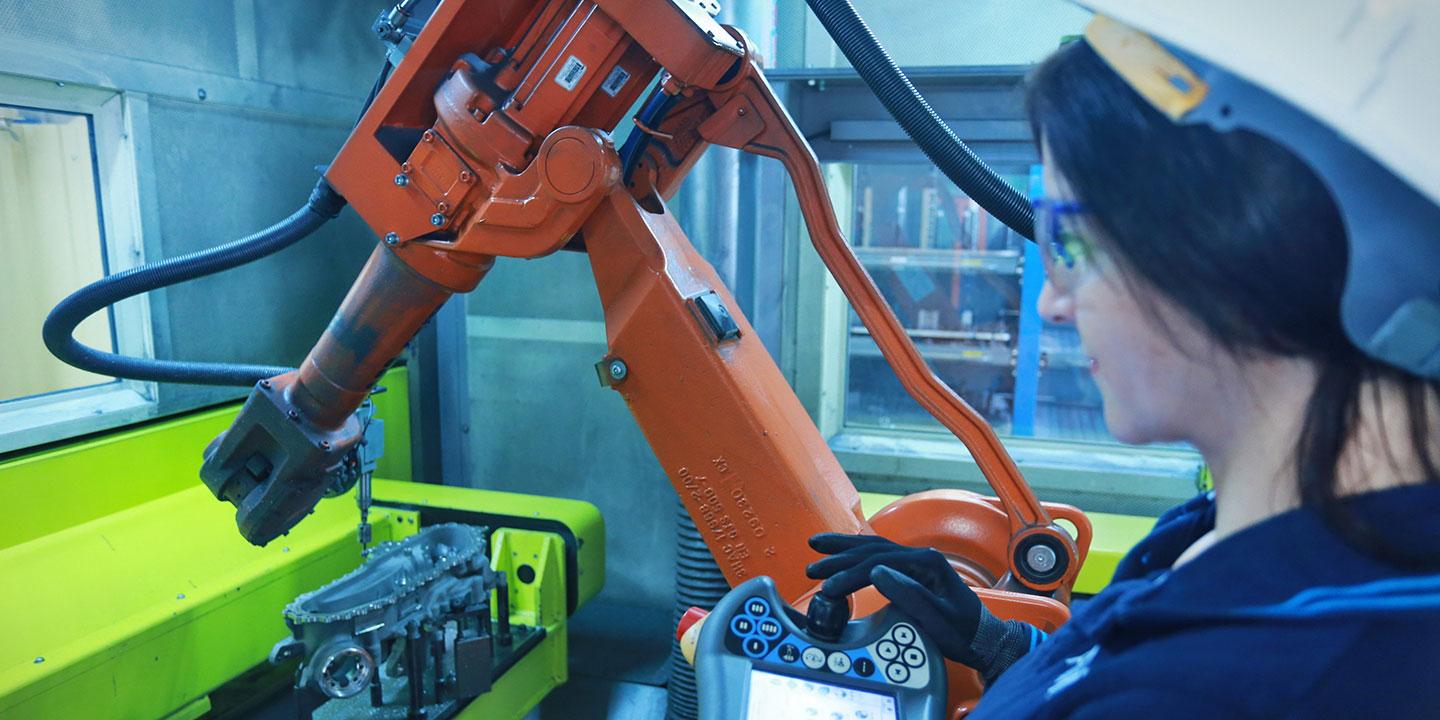Can new technologies humanise automation?

This project investigated how collaborative robotics can enhance rather than replace human work, by developing worker-centric approaches that empower employees to programme and work alongside robots while maintaining job satisfaction and honing their skills.
Project description (completed research project)
The research team developed and evaluated two complementary approaches to make robot programming accessible to production workers: block-based programming and learning from demonstration. Through extensive user testing and a qualitative case study, the project examined how workers' roles evolve with automation, focusing on their experiences, concerns, and professional development needs during robot implementation.
Background
Manufacturing workers face significant transitions as automation becomes more widespread. While traditional automation often aims to replace human labor, this approach proves ineffective for small-to-medium-sized production runs and overlooks valuable human capabilities. Workers need solutions that enhance their skills and leverage their expertise rather than marginalising their role in production processes.
Aim
The project sought to develop automation approaches that empower workers through upskilling and meaningful human-machine collaboration. Key objectives included understanding workers' needs and concerns regarding automation, identifying which tasks benefit from human expertise compared to automation, and creating interfaces that enable workers to programme and work confidently alongside robots.
Relevance
The following conclusions can be drawn from the project:
- It showed that successful automation must prioritise worker empowerment over replacement
- It demonstrated how technology can enhance rather than diminish workers' roles and capabilities
- It highlighted the importance of preparing workers for evolving job responsibilities through targeted training
- It established that worker involvement in automation decisions leads to better technological solutions and smoother implementation
- It provided evidence that focusing on human-machine collaboration rather than replacement helps maintain workplace satisfaction while improving productivity.
Results
Three main messages
- Promoting human-centred automation in manufacturing
The study shows that an augmentation-focused approach to automation can be beneficial for Swiss SMEs, where human flexibility is vital due to variable production volumes. Combining human adaptability with automation can enhance productivity while maintaining flexibiltiy, support reskilling, and improve working conditions. Empowering workers through involvement and hands-on training fosters acceptance and effective use of automation technologies. - Design technologies to be understandable – not just easy to use
People work better with technologies they understand. Participants who learned how the robot system works – not just how to operate it – performed better on complex tasks and handled errors more confidently. Training that included underlying principles reduced anxiety and boosted trust. The key takeaway: usability alone isn’t enough – technologies must also be transparent and explainable. - Promote operator involvement and human-centred design
The study highlights the value of involving operators early in the design of robotic systems. Active participation fosters trust, collaboration and acceptance. Clear communication about the robot’s role and purpose – including uncertainties – is essential for building transparency and reducing anxiety. Human-centered design should take priority over one-size-fits-all automation. Operators’ feedback is key to successful integration and should be actively encouraged throughout design and implementation. Ongoing research should monitor how operator attitudes evolve and assess long-term effects on productivity, skills, and well-being in order to ensure sustainable automation strategies.
- Promoting human-centred automation in manufacturing
Original title
A future that works: Cobotics, digital skills and the re-humanization of the workplace (CODIMAN)
